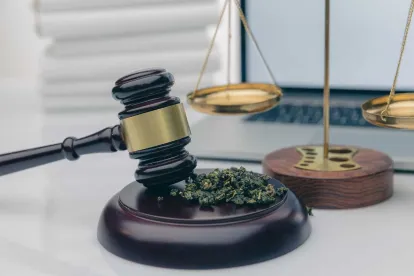In the gift-giving spirit of the season, the Mississippi Department of Health has dropped proposed additions and revisions to the agency’s regulations for medical cannabis cultivators, processors, testing facilities, transportation entities, disposal entities, and regarding work permits, advertising and marketing, and registry/ID cards. The public can address the proposed changes via the department’s public comment website.
While none of the proposed changes completely revamp the state’s medical cannabis program, several proposals warrant highlighting:
Notable Proposed Changes to Cultivation Regulations
-
Defining “indoor cannabis cultivation” to be a facility “completely enclosed and secure.” “Enclosed” means “surrounded by roof and walls permanently in place.” “Permanent” means “a structure that is fixed in place.” “Secure” means “protected from danger or risk.”
-
Expanding the definition of “batch” to include no greater than 50 lbs. (it currently is 10 lbs.), through June 30, 2023, of a homogenous, identifiable quantity of usable medical cannabis.
-
As of July 1, 2023, max batch size shall be no greater than 25 lbs.
-
The term “harvest batch” is also defined to match these volume measurements.
-
-
The meaning of the term “cannabis waste” would be revised to no longer exclude from its definition seeds, roots, stems, stalks, and fan leaves and would be expanded to include “all products and inventory from medical cannabis establishments that may be destroyed and/or rendered unrecognizable and unusable through waste disposal as a result of Department corrective and/or administrative actions.”
-
The MSDH is now proposing a process through which a licensee can seek a “variance” a mechanism that essentially gives licensees an opportunity to obtain permission to not follow all of the regulations.
-
Clarity that separate licenses are required for transportation and disposal.
-
If an applicant is owned by another entity, the applicant must submit details identifying the ownership of that entity.
-
SOPs addressing “recall of cannabis and/or cannabis products.”
-
Further clarity into the process for correcting mistakes/providing additional information in applications.
-
Tier 6 cultivation facilities can be in multiple locations, but those locations must be shown on the submitted site plan(s).
-
Delays in the construction of the cultivation facility may now be an exception to requirement that the licensee engage in licensed activity on the licensed premises within one year of license issuance to avoid facing suspension, revocation or nonrenewal of license, based on deleted language.
-
Removal of the requirement that as of September 1, 2022, all cannabis for medical use must be grown from seeds or plants obtained from a Mississippi-licensed cannabis facility.
-
Lack of plant/package tags and insufficient security measures are dangers to health and safety such that a provisional license may be improper.
-
Cultivation licensees, in addition to the other items already in the regulations, must now also notify the MSDH of verification of implementation of biosecurity measures when the licensee provides notice of intent to commence operations.
-
Must now have a pest control and management plan in place at the premises.
-
Replacing the requirement that cultivation facilities reconcile all product inventories each day in seed-to-sale tracking system with more general language requiring licensees to “ensure that all reporting into the Department approved statewide seed-to-sale system is clear, accurate, and transparent.”
-
Prohibiting any individual from residing at the same address and/or from living on the same property where the cannabis establishment is located and expressly prohibiting “home grow.”
-
Removal of the requirement that the cultivation site must receive water supply from a source that is a regulated water system.
-
Some slight revisions to labeling/packaging.
-
Revisions to how penalties will be assessed for violations.
-
New administrative hearing process through which a licensee must go before going to court.
Notable Proposed Changes to Testing Facility Regulations
-
Expanding the definition of “batch” to include no greater than 50 lbs. (it currently is 10 lbs.), through June 30, 2023, of a homogenous, identifiable quantity of usable medical cannabis.
-
As of July 1, 2023, max batch size shall be no greater than 25 lbs.
-
-
New definitions of technical terms, such as “inclusivity,” “infused cannabis products,” “initial display of competency,” “laboratory control sample,” “limit of quantitation,” “matrix spike sample,” “proficiency test,” “proficiency test sample,” “process lot,” “validation,” and “water activity.”
-
New requirements that the lab’s full-time analyst (a) demonstrate an initial display of competency (defined term) before analyzing any sample; (b) complete a continuing demonstration of competency annually; and (c) run a specific analysis each calendar year.
-
Per proposed changes, it appears that the lab is not necessarily required to test terpenoids when seeking a certificate of accreditation.
-
Subchapter 6 proposes to change how samples are tested/segregated.
-
New specifications on how to test cannabis-infused products.
-
More specificity on what must be tested when testing for potency.
-
The standards for testing terpenoids are expanded/more detailed.
-
New SOP category being proposed: “Current step-by-step instructions with sufficient detail to perform the assay to include equipment operation and any abbreviated versions used by a testing analyst.”
-
New requirement that the testing lab develop, implement, and validate test methods for the analyses of samples, with specific guidelines for such outlined.
-
The continuing calibration verification process is being slightly revised.
Notable Proposed Changes to Processing Regulations
-
Expanding the definition of “batch” to include no greater than 50 lbs. (it currently is 10 lbs.), through June 30, 2023, of a homogenous, identifiable quantity of usable medical cannabis.
-
As of July 1, 2023, max batch size shall be no greater than 25 lbs.
-
The term “harvest batch” is also defined to match these volume measurements.
-
-
The meaning of the term “cannabis waste” would be revised to no longer exclude from its definition seeds, roots, stems, stalks, and fan leaves and would be expanded to include “all products and inventory from medical cannabis establishments that may be destroyed and/or rendered unrecognizable and unusable through waste disposal as a result of Department corrective and/or administrative actions.”
-
The MSDH is now proposing a process through which a licensee can seek a “variance” a mechanism that essentially gives licensees an opportunity to obtain permission to not follow all of the regulations..
-
Clarity that separate licenses are required for transportation and disposal.
-
If an applicant is owned by another entity, the applicant must submit details identifying the ownership of that entity.
-
New SOPs category regarding “recall of cannabis and/or cannabis products.”
-
Further clarity into the process for correcting mistakes/providing additional information in applications.
-
A processing facility employee’s required training may have to include training on methods of processing the use of closed-loop extraction systems, if applicable.
-
Lack of plant/package tags and insufficient security measures are dangers to health and safety such that a provisional license may be improper.
-
Must now have a pest control and management plan in place at the premises.
-
Some slight revisions to labeling/packaging.
-
Revisions to how penalties will be assessed for violations.
-
New administrative hearing process through which a licensee must go before going to court.
-
Removal of the requirement that as of September 1, 2022, all cannabis for medical use must be grown from seeds or plants obtained from a Mississippi-licensed cannabis facility.
Notable Proposed Changes to Transportation Regulations
-
Like in the cultivation and processing regulations, the MSDH is now proposing a process through which a transportation entity licensee can seek a “variance”, a mechanism that essentially gives licensees an opportunity to obtain permission to not follow all of the regulations.
-
Revisions to how penalties will be assessed for violations.
-
New administrative hearing process through which a licensee must go before going to court, if a dispute arises between the licensee/applicant and the state regarding agency decisions.
-
Lack of plant/package tags and insufficient security measures are dangers to health and safety such that a provisional license may be improper.
-
If an applicant is owned by another entity, the applicant must submit details identifying the ownership of that entity.
-
Before staring operations, the transportation licensee must notify the MSDH of its intent to commence operations. That notice must include verification of:
-
Operational alarm and video surveillance systems;
-
Secure locks throughout the facility;
-
Access controls throughout the facility;
-
Performing physical plant operations;
-
Employment records; and
-
Connection to seed-to-sale system.
-
-
The transportation entity must enter employee information in seed-to-sale tracking system within seven calendar days of employee start dates.
-
Transportation entity employees must have completed a minimum of eight hours of initial training and five hours of annual training on various topics.
Notable Proposed Changes to Disposal Regulations
-
Like in the other proposed regulations, the MSDH is now proposing a process through which a disposal entity licensee can seek a “variance”, a mechanism that essentially gives licensees an opportunity to obtain permission to not follow all of the regulations.
-
Revisions to how penalties will be assessed for violations.
-
The meaning of the term “cannabis waste” would be revised to no longer exclude from its definition seeds, roots, stems, stalks, and fan leaves and would be expanded to include “all products and inventory from medical cannabis establishments that may be destroyed and/or rendered unrecognizable and unusable through waste disposal as a result of Department corrective and/or administrative actions.”
-
New administrative hearing process through which a licensee must go before going to court, if a dispute arises between the licensee/applicant and the state regarding agency decisions.
-
Lack of plant/package tags and insufficient security measures are dangers to health and safety such that a provisional license may be improper.
-
The disposal entity must enter employee information in seed-to-sale tracking system within seven calendar days of employee start dates.
-
Disposal entity employees must have completed a minimum of eight hours of initial training and five hours of annual training on various topics.
Notable Proposed Changes to Advertising and Marketing Regulations
-
The proposed regulations specify that while cannabis businesses can have an established internet and social media presence, they cannot display pictures or images of cannabis or cannabis products on these sites.
Notable Proposed Changes to Work Permit Regulations
-
Removal of the term “agent” from substantive portions of regulations, though the term remains in the definition section.
-
Changed background check language and procedures in application section of regulations.
Notable Proposed Changes to Registry/ID Cards
-
Removal of requirement that patient applicant provide proof of Mississippi residency using two source documents from ownership/lease/rental documents, utility billing statements, or vehicle registration information.
-
New section stating that a qualifying patient must attend a follow-up visit with the same practitioner the patient originally visited not less than six months from the date the practitioner issued the practitioner certification, after the patient receives that certification and approval from the MSDH for enrolling in the program.
-
Removal of the requirement that the nonresident applicant for the patient ID card in Mississippi submit proof of residency source document information in applicant’s state of residency.
Removal of the requirement that the applicant for the designated caregiver ID card provide proof of residency source document information.




 />i
/>i

